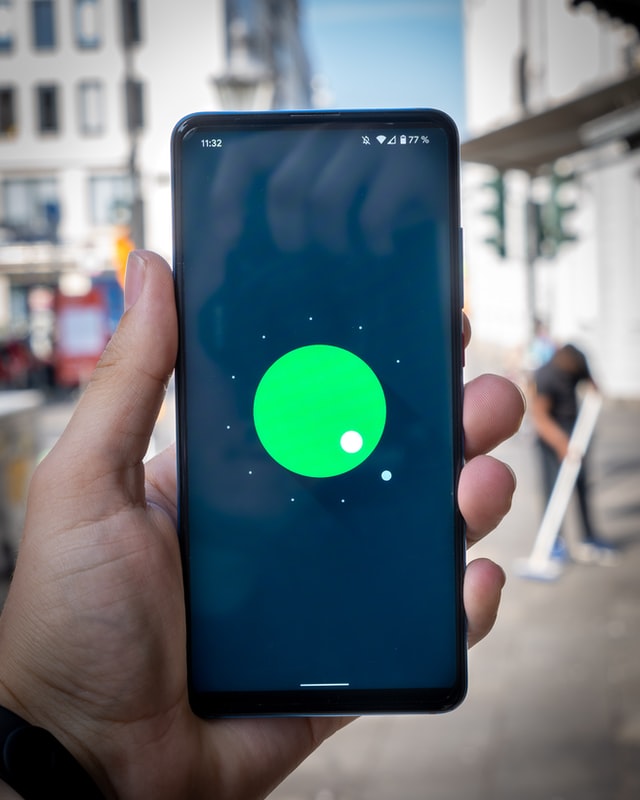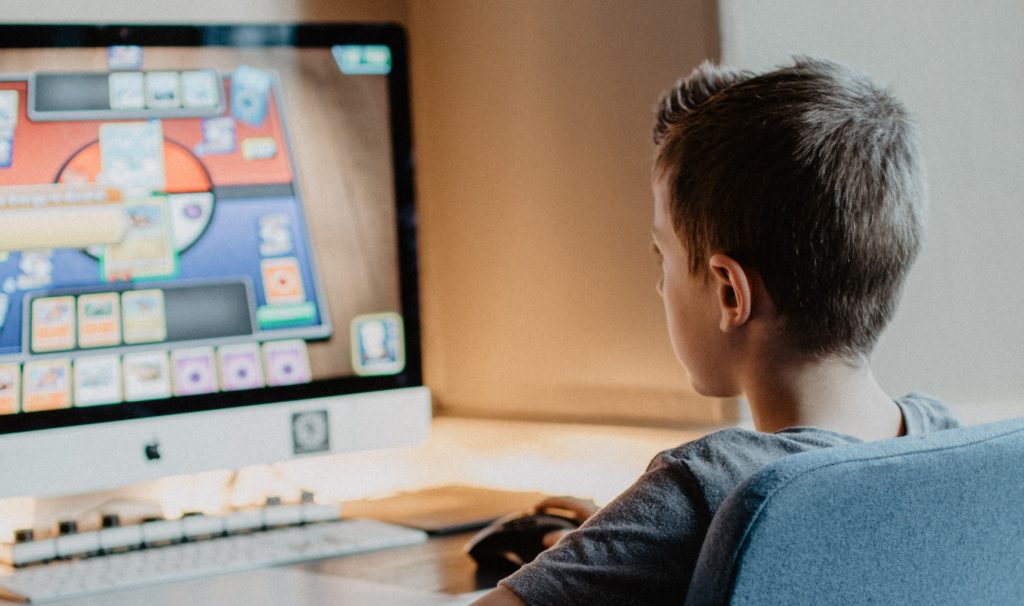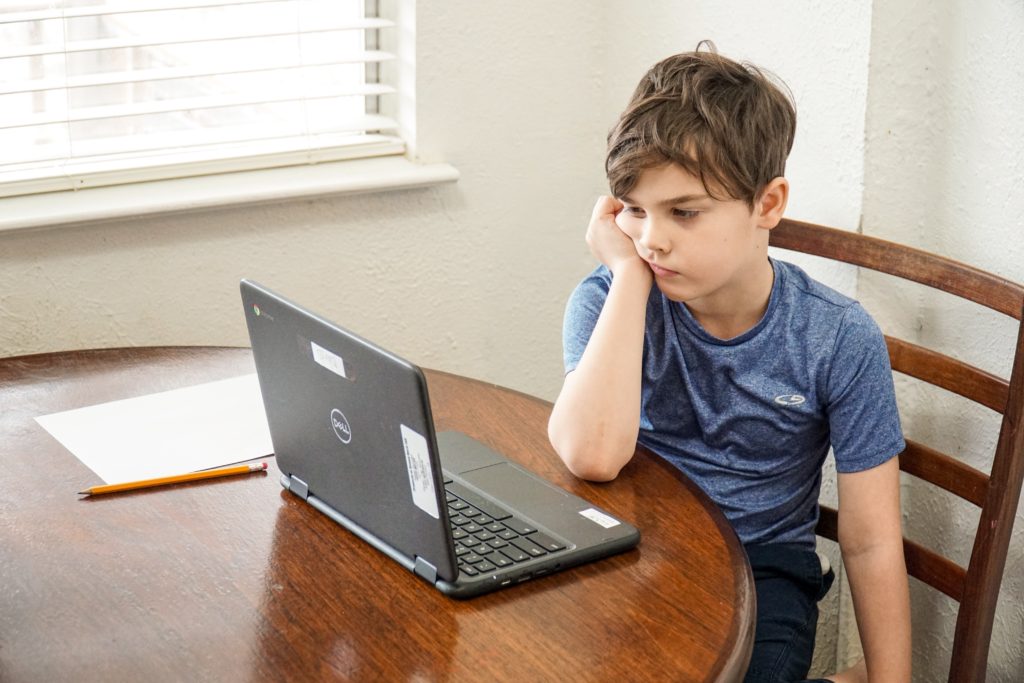Table of Contents
What Are Brain Training Games?
Brain Training Games are a type of video game or app that uses simple games to challenge users on basic skills such as testing their reaction time, memory, or math skills. The games in Brain Training Games are usually much simpler than traditional video games. They often rely on either fast paced reaction time games or memory tasks instead of more complex puzzle solving.
These Brain Training Games claim to be able to improve users’ cognitive performance in various domains such as Executive Functioning, Memory, and Processing Speed. Because of this, many teachers include these games for students to play during workstation time.
Are there any merits to these types of games and do they help users improve skills that transfer to other situations or only make the player better at the game itself?
Research on Brain Training Games
Research has a fairly clear consensus on the claims of most Brain Training Game apps. While there may be some basic transfer of skills to very similar tasks, playing Brain Training Games does not improve cognitive performance in any general sense.
A literature review of the current studies on the topic of Brain Training Games found that there is no connection between playing Brain Training Games and general cognitive ability. (Sala and Gobet) The researchers stated that while some studies do show positive correlations, these studies have errors in experimental design or statistical analysis.
Another study on the data also struggled to find evidence supporting Brain Training Games. While studies do exist purporting to substantiate the claim of Brain Training Games, the authors of this study claimed that their standards of evidence in claiming improving cognitive performance were much lower than those that questioned Brain Training Games’ efficacy. (Simons, et al.)
The authors summed up their findings by saying “Based on this examination, we find extensive evidence that brain-training interventions improve performance on the trained tasks, less evidence that such interventions improve performance on closely related tasks, and little evidence that training enhances performance on distantly related tasks or that training improves everyday cognitive performance.”

So while Brain Training Games may transfer some skills to very closely related activities for some people, there was no sign of transfer to any sort of general cognitive ability. Brain Training Games mainly make the player better at playing the game rather than working to exercise their brain like weight training does for muscles.
However, there is one group for which Brain Training Games have shown serious promise. While they do not seem to boost up the average person’s cognitive ability, there are several studies that have shown that Brain Training Games may help to stave off cognitive decline in older adults.
A recent study consisting of 15 trials for 759 older adults in retirement homes found that measures of executive functioning, processing speed, and short term memory were improved in the older adults who used Brain Training Apps. (Wang, et al.) This shows some encouraging results for older adults interested in keeping their minds from deteriorating and keeping their minds fast and efficient.
While there has not been a follow up study on this cohort to see if the improvements lasted, a previous study that showed similar positive results found in their followup that the positive cognitive benefits had faded in just 3 months after the study ended. (Ballesteros, et al.) This seems to suggest that while these games may work in the short term to keep minds active and fresh, the benefits are short-lived.
Should Brain Training Games Be Used in School?
While Brain Training Games claim to be like exercise for the mind, the results they claim are at best exaggerated, or not very useful in a young growing mind. The overly simplistic games are simply not complicated enough to teach children new problem solving skills.
Teachers hoping to give kids a beneficial and fun game to play during work station time or while waiting to be picked up by their parents would be better served by giving their kids traditional video games, board games, or other puzzles that require more than one cognitive domain to work concurrently for students to solve or win.
It may be confusing that games designed specifically for challenging the brain and helping people to learn are less effective than games designed just for fun, but that is what the research shows. According to research, a person’s general cognitive ability “has been consistently found to correlate with performance in cognitive tasks and complex activities such as playing music, board games, and video games.” (Sala and Gobet)
The current Brain Training Games try too hard to hone in on a single aspect of human cognition for each game in order to focus on improving that specific skill. However, almost no tasks that humans do on a regular basis only require one domain to be active at a time.
Instead, more complex games and activities that require students to problem solve using multiple pathways will help them develop more transferable problem solving skills. Games and puzzles that challenge students to think in new ways are more effective than repetitive tasks at improving general cognitive ability.
Conclusion
Brain Training Games ironically do very little to train the brain and instead only make the user better at playing Brain Training Games rather than transferring to other related tasks. This is like if weight training only made people better at lifting heavier weights, but did not make them stronger or healthier outside of the gym.
This research shows the pitfalls of simplifying the brain down to the level of a muscle. Many educators like to make this comparison of the brain to a muscle to encourage students to study regularly and engage in challenging tasks more often. The brain is not just a muscle however, and like the whole body, has many parts that need to work together to reach their full potential.
Teachers wanting to find more useful things to fill students free time should instead look at the power of break times. Rather than trying to fill every second of classroom time with “useful” activities, teachers should prioritize learning tasks that will improve targeted student skills and allow extra time to simply take a break. This will allow students to fully recover their mental faculties so that they can dive back into the main content refreshed and recovered rather than tired from their filler activity “Brain Training”.
Want more like this? Make Lab to Class a part of your weekly professional development schedule by subscribing to updates below.
References
Ballesteros, Soledad, et al. “A Randomized Controlled Trial of Brain Training with Non-Action Video Games in Older Adults: Results of the 3-Month Follow-Up.” Frontiers in Aging Neuroscience, vol. 7, 2015, https://doi.org/10.3389/fnagi.2015.00045.
Sala, Giovanni, and Fernand Gobet. “Cognitive Training Does Not Enhance General Cognition.” Trends in Cognitive Sciences, vol. 23, no. 1, 2019, pp. 9–20., https://doi.org/10.1016/j.tics.2018.10.004.
Simons, Daniel J., et al. “Do ‘Brain-Training’ Programs Work?” Psychological Science in the Public Interest, vol. 17, no. 3, Oct. 2016, pp. 103–186, doi:10.1177/1529100616661983.
Wang, Guangning, et al. “Game-Based Brain Training for Improving Cognitive Function in Community-Dwelling Older Adults: A Systematic Review and Meta-Regression.” Archives of Gerontology and Geriatrics, Elsevier, 19 Sept. 2020, https://www.sciencedirect.com/science/article/pii/S0167494320302570.



